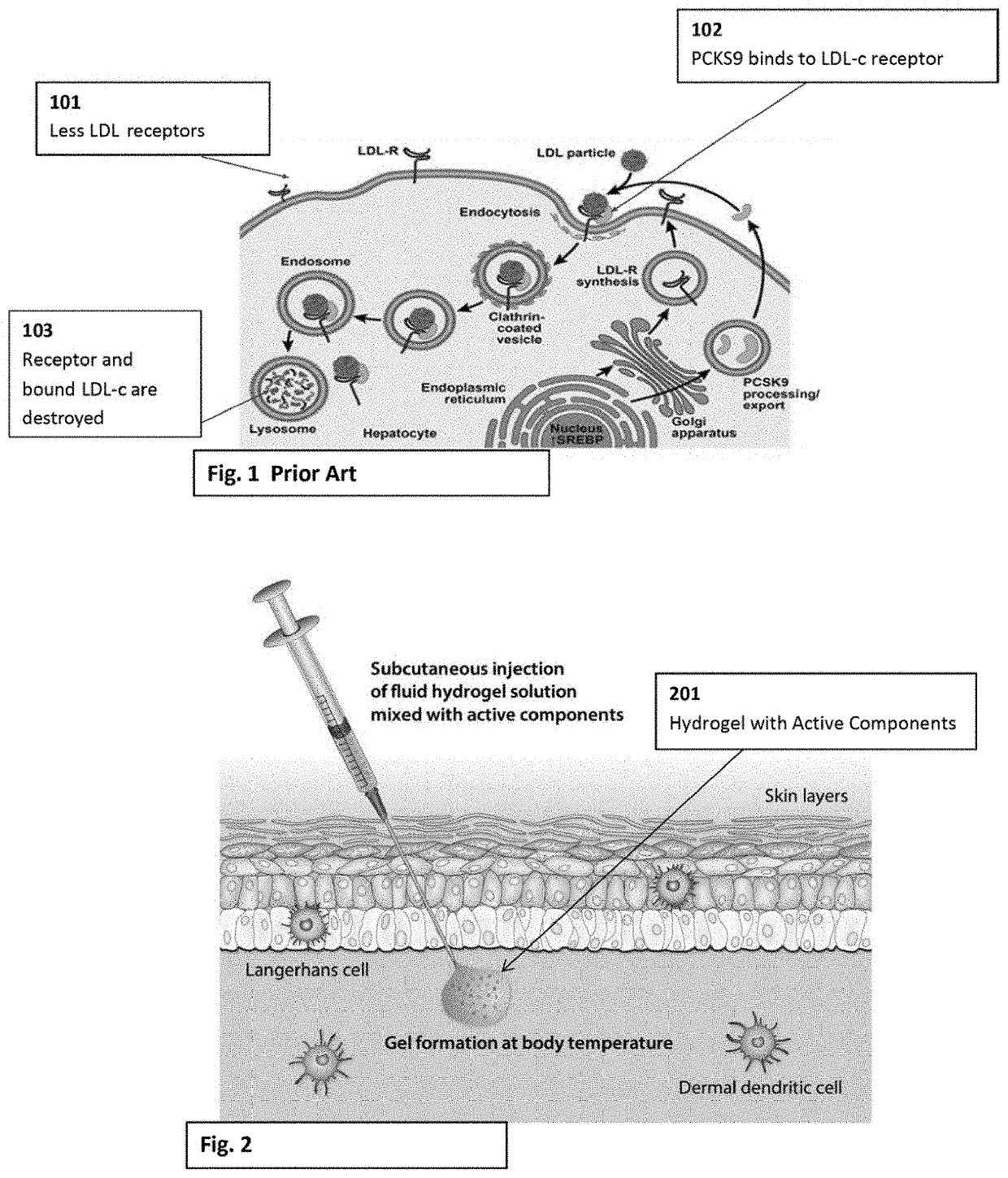Self-Assembling Multi-Domain Peptide Based Hydrogels
a hydrogel and self-assembling technology, applied in the field of hydrogels, can solve the problems of decreasing efficacy and unusable administration, and achieve the effects of reducing the yearly cost of ldl-c treatment, facilitating synthesis, and facilitating synthesis
- Summary
- Abstract
- Description
- Claims
- Application Information
AI Technical Summary
Benefits of technology
Problems solved by technology
Method used
Image
Examples
example 1
[0054]To facilitate a better understanding of the present invention, the following example of specific instances is given. In no way should the following example be read to limit or define the entire scope of the invention. The following materials and methods were employed for the Example below.
[0055]The polymer synthesis took place in a small-scale laboratory. The full sequence peptide was synthesized, recovered by continuous flow dialysis (to increase dialysis yield), and sterile filtered into an instrument that lyophilizes the sample. After lyophilization, the peptide was dissolved into sucrose at 2% wt. (4 mg for every 200 μL sucrose; yields a 6.18 mM solution) and the pH was brought to 7.0 with the addition of 0.5% NaOH at 1.0 μL increments.
[0056]During dialysis, synthesized protein was placed in a selectively permeable membrane that draws out contaminants, leaving the purified protein behind. After dialysis, the protein was placed in a lyophilizer to dry. The mass of the dried...
PUM
| Property | Measurement | Unit |
|---|---|---|
| concentration | aaaaa | aaaaa |
| concentration | aaaaa | aaaaa |
| concentration | aaaaa | aaaaa |
Abstract
Description
Claims
Application Information
 Login to View More
Login to View More - R&D
- Intellectual Property
- Life Sciences
- Materials
- Tech Scout
- Unparalleled Data Quality
- Higher Quality Content
- 60% Fewer Hallucinations
Browse by: Latest US Patents, China's latest patents, Technical Efficacy Thesaurus, Application Domain, Technology Topic, Popular Technical Reports.
© 2025 PatSnap. All rights reserved.Legal|Privacy policy|Modern Slavery Act Transparency Statement|Sitemap|About US| Contact US: help@patsnap.com

